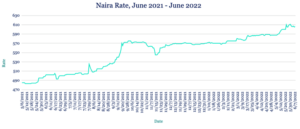Channelling SDRs to avert Africa debt crisis
The African Development Bank has called on rich countries to lend it some of the $650 billion of special drawing rights issued to them by the IMF as part of the fund’s response to the coronavirus pandemic. The whole of Africa received less than half the amount assigned by the IMF to the US, for example, as allocations were made based on factors including the size of countries’ economies. The AfDB has proposed using the SDRs as collateral to raise further funds to support poorer African countries.
The plan builds on an initiative of the United Nations Economic Commission for Africa for SDRs to be utilised to enhance the IMF´s capacity to support countries in need, leveraging the multilateral development banks and creating a new Liquidity and Sustainability Facility (LSF) to lower the liquidity premium on sovereign bonds offered by developing countries. The need for such support mechanisms is becoming increasingly urgent for more governments: this week, FX shortages and high debt levels forced Malawi’s government to seek renewed access to the IMF’s extended credit facility. Expect more to follow.
Naira to gain on political dollar flows
 The Naira appreciated marginally against the dollar this week, trading at 606 from 607 at last week’s close. Nigeria this week shelved a planned $950m Eurobond sale due to adverse market conditions, with the finance ministry saying it will instead use the IMF’s special drawing rights to fund projects and then reduce external borrowings this financial year.
The Naira appreciated marginally against the dollar this week, trading at 606 from 607 at last week’s close. Nigeria this week shelved a planned $950m Eurobond sale due to adverse market conditions, with the finance ministry saying it will instead use the IMF’s special drawing rights to fund projects and then reduce external borrowings this financial year.
Meantime, former Lagos State Governor and presidential hopeful Bola Ahmed Tinubu has emerged as the primary candidate for the ruling APC after seven other potential candidates withdrew from the race to support him. We expect to see further gains for the Naira in the weeks ahead as political dollars circulating in the country get converted into local currency.
Cedi outlook sours as inflation hits 18-year high
The Cedi lost ground against the dollar this week, trading at 7.88 from 7.80 at last week’s close as Ghana continues to battle with surging inflation.
Prices increased 27% year-on-year in May from 23.7% in April, the fastest pace in 18 years, driven higher by food and transport costs. Hefty interest rate hikes in March and May have so far failed to halt the rise in prices.
The Cedi has now lost about 5% of its value against the dollar in the past month and more than a fifth of its value since the start of the year. We expect the Cedi to remain under pressure in the near term as higher interest rates filter through to the economy.
Rand strengthening may be shortlived
The Rand strengthened against the dollar this week, trading at 15.3 from 15.5 at last week’s close.
 The currency could be poised for renewed volatility, however, after South Africa’s central bank this week changed the way it implements monetary policy by moving to a so-called surplus system that allows commercial banks to hold and earn interest on excess reserves.
The currency could be poised for renewed volatility, however, after South Africa’s central bank this week changed the way it implements monetary policy by moving to a so-called surplus system that allows commercial banks to hold and earn interest on excess reserves.
This could make it easier to speculate on the Rand and lead to larger price moves. Technical charts point to potential downside. Overall, we remain cautious, with economic data in the US and EU likely to dictate the Rand’s direction over the coming week.
Egyptian Pound slumps to five-year low
The Pound weakened to a five-year low against the dollar this week, trading at 18.71 from 18.63 at last week’s close.
 Deteriorating business conditions in the non-oil sector of the economy and a stronger dollar continue to negatively impact the currency. Increased input-cost inflation has also seen new orders fall at the fastest pace in almost two years.
Deteriorating business conditions in the non-oil sector of the economy and a stronger dollar continue to negatively impact the currency. Increased input-cost inflation has also seen new orders fall at the fastest pace in almost two years.
We expect the Pound to continue weakening over the coming weeks in the absence of any significant postitive economic data.
Kenyan Shilling retests record low
The Shilling was back trading at its record low against the dollar, weakening to 117.01 from 116.81 at last week’s close.
The continued weakness comes as elevated demand for the greenback from the energy and manufacturing sectors bumps against an ongoing shortage of FX. This dollar scarcity coupled with higher production costs has put further strain on the cost of living.
 The World Bank says it expects Kenya’s economic growth to slow to 5.5% this year from 7.5% in 2021 due to higher commodity prices and a severe drought in the region. We foresee the Shilling losing further ground in the coming weeks ahead of August’s presidential election.
The World Bank says it expects Kenya’s economic growth to slow to 5.5% this year from 7.5% in 2021 due to higher commodity prices and a severe drought in the region. We foresee the Shilling losing further ground in the coming weeks ahead of August’s presidential election.
First rate hike since 2018 boosts Ugandan Shilling
The Shilling strengthened against the dollar this week, trading at 3719 from 3740 at last Friday’s close. The brighter outlook follows Uganda’s decision to raise interest rates late last week for the first time since 2018 to counter surging inflation and the weakening currency.
The central bank lifted its benchmark rate 100bps higher to 7.5%.
The bank also cut its economic growth forecast for this year to between 4.5% and 5% from an earlier estimate of 5.5% to 6%. We expect the rate hike to continue supporting the Shilling over the coming week.
Budget may heighten on Tanzanian Shilling volatility
The Shilling weakened marginally against the dollar this week, trading at 2330 from 2328 at last week’s close, taking losses over the past month to 0.3%.
Tanzania’s Minister of Finance and Planning Mwigulu Nchemba this week said the government is planning to spend TZS9.09tr on debt servicing over the coming financial year that begins in July—more than half of the ministry’s TZS14.94tr budget that Nchemba is seeking for parliament to approve.
 We expect the Shilling to be more volatile than normal over the coming week given the government is scheduled to present its 2022/23 budget speech on Tuesday.
We expect the Shilling to be more volatile than normal over the coming week given the government is scheduled to present its 2022/23 budget speech on Tuesday.
Note to journalists: please feel free to quote from this briefing for news reports and let us know any requests for further comment or interviews via the contact details at the end, or by reply to this email. AZA is Africa’s largest non-bank currency broker by trading volume at over $1 billion annually. See https://www.azafinance.com
Issued by AZA. This Newsletter is produced as a service to our clients. It is prepared by our dealing professionals and is based on their understanding and interpretation of market events. AZA cannot be held responsible for any losses of whatever nature sustained as a result of action taken based on comments contained in this publication.
For more information, high-resolution charts or interviews, please contact:
Gavin Serkin
[email protected]
+44 20 3478 9710












